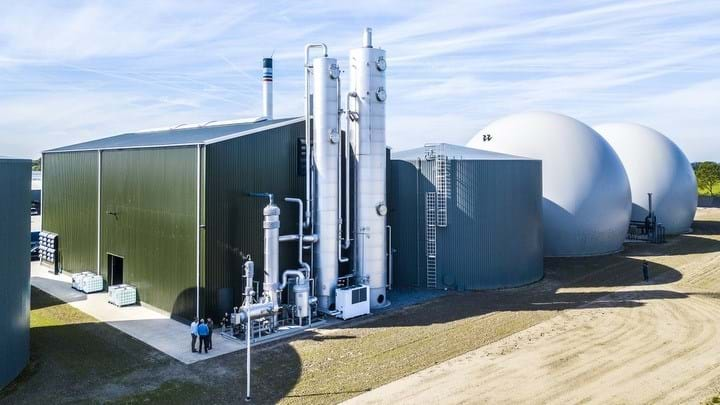Hydrogen Storage Market is valued at approximately USD 8,356.06 million and is projected to grow at a compound annual growth rate (CAGR) of 23% over the forecast period, reaching around USD 15,595 million by 2032.The hydrogen storage market is at the forefront of the global transition to sustainable energy. With the increasing emphasis on decarbonization and renewable energy sources, hydrogen has emerged as a critical energy carrier. Hydrogen storage solutions are essential for facilitating the adoption of hydrogen in applications spanning transportation, power generation, and industrial processes. This market is experiencing rapid growth, fueled by advancements in storage technologies, supportive government policies, and rising investments in green hydrogen projects.
Browse the full report https://www.credenceresearch.com/report/hydrogen-storage-market
Market Dynamics
Market Growth and Potential
The hydrogen storage market is projected to witness significant growth over the next decade. This expansion is driven by the rising demand for hydrogen as a clean fuel alternative and the need for robust storage solutions that support its safe and efficient utilization. The development of large-scale green hydrogen production facilities is further propelling the demand for advanced storage technologies. As nations aim to achieve their net-zero emissions targets, hydrogen storage infrastructure is becoming a vital component of their energy strategies.
Technological Advancements
Innovations in storage technologies are transforming the hydrogen market landscape. Storage methods such as compressed gas, liquid hydrogen, and solid-state storage materials are gaining traction due to their efficiency and scalability. Compressed hydrogen, for example, is widely used in fuel cell vehicles and portable power systems. Meanwhile, advancements in cryogenic storage have enhanced the feasibility of liquid hydrogen for large-scale transportation and aerospace applications. Solid-state hydrogen storage, leveraging metal hydrides and chemical compounds, offers promising potential for long-term storage with high energy densities.
Key Market Drivers
Decarbonization Initiatives and Energy Transition
Governments and industries worldwide are prioritizing decarbonization to combat climate change. Hydrogen is a versatile energy carrier that can be utilized in hard-to-abate sectors such as heavy industry, shipping, and aviation. Investments in hydrogen storage systems are being driven by the need to ensure a steady supply of hydrogen to meet growing demand, particularly in renewable energy integration and industrial applications.
Expansion of Fuel Cell Electric Vehicles (FCEVs)
The growing adoption of FCEVs has intensified the demand for hydrogen storage solutions. Fuel cell technology relies on stored hydrogen to generate electricity for propulsion, offering a clean alternative to conventional internal combustion engines. Major automotive manufacturers and governments are investing in hydrogen refueling infrastructure, further boosting the market for hydrogen storage.
Government Support and Policies
Supportive policies and funding initiatives are playing a pivotal role in accelerating hydrogen storage deployment. Governments are implementing subsidies, grants, and tax incentives to encourage the adoption of hydrogen technologies. For instance, the European Union’s Hydrogen Strategy aims to establish a comprehensive hydrogen ecosystem, while countries like Japan and South Korea have set ambitious targets for hydrogen storage and utilization.
Challenges and Opportunities
Despite its promising outlook, the hydrogen storage market faces challenges such as high costs and safety concerns. Developing cost-effective and scalable storage solutions remains a priority for stakeholders. The industry is also addressing safety issues related to hydrogen’s flammability and high-pressure storage requirements by advancing materials and system designs.
Opportunities lie in expanding infrastructure for hydrogen refueling and storage. Innovations in modular and transportable storage systems are enabling flexible deployment in remote areas and off-grid applications. Furthermore, the integration of hydrogen storage with renewable energy sources, such as wind and solar, presents a compelling use case for balancing energy supply and demand.
Future Outlook
The future of the hydrogen storage market looks promising, with continued advancements in technology and supportive policy frameworks. By 2030, the market is expected to witness substantial growth, driven by widespread adoption across various sectors. Emerging trends, such as the development of hydrogen-powered aviation and marine transportation, will further propel the demand for innovative storage solutions.
Key Players:
- Air Products and Chemicals, Inc.
- Linde plc
- Nel ASA
- Plug Power Inc.
- Ballard Power Systems Inc.
- Cummins Inc.
- Toyota Motor Corporation
- Siemens AG
- Hexagon Composites ASA
- Hyzon Motors Inc.
Segmentations:
Based on Product Type:
- Compressed Hydrogen Storage
- Liquid Hydrogen Storage
- Solid-State Hydrogen Storage
Based on Technology:
- Physical Storage
- Chemical Storage
- Hybrid Systems
Based on End-User:
- Transportation
- Power Generation
- Industrial Processes
- Residential Applications
Based on Region:
- North America
- United States
- Canada
- Europe
- United Kingdom
- Germany
- France
- Italy
- Asia-Pacific
- China
- India
- Australia
- Japan
- Latin America
- Brazil
- Mexico
- Argentina
- Middle East and Africa
- South Africa
- United Arab Emirates
- Israel
Browse the full report https://www.credenceresearch.com/report/hydrogen-storage-market
Contact:
Credence Research
Please contact us at +91 6232 49 3207
Email: sales@credenceresearch.com
Website: www.credenceresearch.com

Leave a Reply
You must be logged in to post a comment.